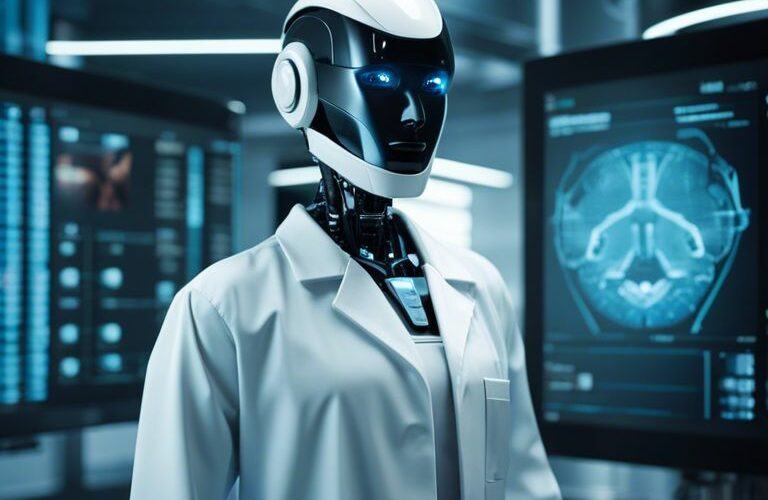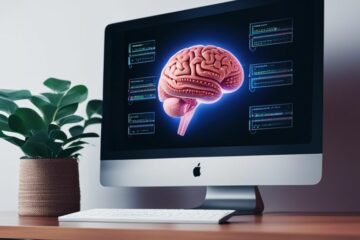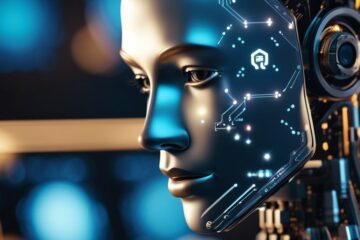Medicine is constantly evolving, and one of the most groundbreaking advancements in recent years is the integration of Artificial Intelligence in the healthcare industry. With the ability to analyze complex medical data at a rapid pace, AI has the potential to revolutionize the way we diagnose, treat, and manage diseases. By leveraging AI algorithms, healthcare professionals can make more accurate and efficient decisions, ultimately leading to improved patient outcomes.
Key Takeaways:
- Improved Diagnostics: AI can analyze medical images and scans with great precision, leading to faster and more accurate diagnoses.
- Personalized Treatment Plans: By considering individual patient data, AI can create tailored treatment plans that are more effective and have fewer side effects.
- Enhanced Patient Care: AI technologies can help doctors and nurses make informed decisions quickly, ultimately improving patient outcomes and satisfaction.
- Predictive Analytics: AI can analyze large amounts of data to predict disease progression and potential health risks, enabling preventive interventions.
- Streamlined Administrative Tasks: Automating paperwork and administrative tasks with AI can free up healthcare professionals to focus more on patient care.
- Ethical and Legal Considerations: As AI becomes more prevalent in medicine, there is a need to address issues such as data privacy, bias, and accountability.
- Continuous Learning and Development: AI systems can continuously learn from new data and improve over time, leading to advancements in medical research and treatment.
The Role of AI in Medical Diagnostics
While the field of medicine continues to advance at a rapid pace, the integration of artificial intelligence has become a game-changer in medical diagnostics. By leveraging AI technologies, healthcare professionals can enhance the accuracy and efficiency of diagnosis, leading to improved patient outcomes and personalized treatment plans.
Machine Learning for Disease Detection
For the early detection and diagnosis of diseases, machine learning algorithms are proving to be invaluable. These intelligent systems can analyze vast amounts of patient data, identify patterns, and predict potential health issues before symptoms manifest. By utilizing machine learning for disease detection, healthcare providers can intervene early, preventing the progression of illnesses and offering timely interventions to those in need.
AI in Medical Imaging and Radiology
Disease diagnosis through medical imaging and radiology is witnessing a transformative shift with the integration of artificial intelligence. Advanced AI algorithms can interpret complex images such as X-rays, MRIs, and CT scans with remarkable precision and speed. This not only aids radiologists in making more accurate diagnoses but also enhances the efficiency of healthcare delivery.
Learning algorithms continuously improve their performance by analyzing a vast number of medical images, thereby refining their diagnostic capabilities over time. This iterative process enhances the accuracy of medical imaging diagnostics, reducing human error and providing clinicians with enhanced insights for better patient care.
Predictive Analytics in Patient Care
An necessary application of artificial intelligence in healthcare is predictive analytics, which involves the use of AI algorithms to forecast patient outcomes based on historical data, clinical parameters, and risk factors. By employing predictive analytics in patient care, healthcare providers can anticipate deteriorations in health, optimize treatment plans, and improve overall patient management.
A proactive approach to patient care is facilitated through predictive analytics, allowing healthcare teams to intervene early and prevent adverse events. By harnessing the power of AI for predictive analytics, healthcare organizations can enhance patient safety, improve quality of care, and ultimately, save lives.
AI in Drug Discovery and Development
Accelerating Pharmaceutical Research
With the help of Artificial Intelligence (AI), pharmaceutical research is being revolutionized, accelerating the process of drug discovery and development. AI algorithms can analyze vast amounts of data, including chemical structures, protein interactions, and genetic information, to identify potential drug candidates more quickly and accurately than ever before. This speed and efficiency not only save time and resources but also have the potential to bring life-saving medications to market faster.
Automating Clinical Trials
Pharmaceutical companies are utilizing AI to automate various aspects of clinical trials, from patient recruitment and monitoring to data analysis. By streamlining these processes, AI can help reduce costs, improve patient outcomes, and speed up the overall drug development timeline. This automation also allows for more personalized and precise medicine, leading to better treatment outcomes for patients.
Trials conducted with AI assistance have shown promising results, with increased efficiency and accuracy in data collection and analysis. AI can identify patterns and insights that may not be obvious to human researchers, leading to more informed decision-making throughout the clinical trial process.
Personalized Medicine and Genomics
With the integration of AI, personalized medicine and genomics are advancing rapidly. AI algorithms can analyze an individual’s genetic makeup and health data to tailor treatments specifically to their unique characteristics. This personalized approach not only improves treatment effectiveness but also minimizes potential side effects, leading to better patient outcomes and satisfaction.
Plus, AI in genomics has the potential to revolutionize preventative medicine by identifying individuals at higher risk for certain diseases and enabling early interventions. By understanding an individual’s genetic predispositions, healthcare providers can offer proactive measures to prevent or mitigate the progression of various illnesses.
AI in Surgery and Robotic Assistance
Robotic Surgery and Precision Medicine
For many years, surgeons have been using robotic assistance to perform complex procedures with more precision and flexibility than traditional surgical methods. Robots can offer greater dexterity and range of motion, enabling surgeons to access hard-to-reach areas with improved accuracy. This technology is revolutionizing the field of surgery and paving the way for precision medicine, where treatments can be tailored to individual patients based on their unique genetic makeup and specific needs.
AI in Preoperative and Postoperative Care
For many patients, the journey through surgery does not end with the procedure itself. AI technologies are increasingly being used in preoperative and postoperative care to enhance patient outcomes and improve recovery times. AI algorithms can analyze patient data to predict potential complications, recommend personalized treatment plans, and monitor patients remotely after surgery. These advancements are transforming the way healthcare professionals approach surgery and postoperative care, leading to better outcomes for patients.
Precision medicine involves customizing healthcare, with medical decisions, practices, and treatments tailored to the individual patient. This approach takes into account individual variability in genes, environment, and lifestyle for each person.
Training and Simulation for Surgeons
Surgery is an intricate and demanding field that requires years of training and practice to master. AI-powered training and simulation tools are helping surgeons develop their skills in a safe and controlled environment. These technologies allow surgeons to practice procedures, refine techniques, and enhance their decision-making abilities without the need for live patients. By integrating AI into surgical training, the next generation of surgeons can learn more efficiently and effectively, ultimately improving patient outcomes.
Another benefit of using AI in surgical training is the ability to track and assess the performance of surgeons objectively. By analyzing data from simulations, AI can provide valuable insights and feedback to help surgeons continuously improve their skills and stay at the forefront of surgical advancements.
AI in Patient Monitoring and Management
Wearable Sensors and IoT Devices
Sensors are revolutionizing patient monitoring and management with the advent of wearable sensors and IoT devices. These technologies allow for continuous and real-time tracking of vital signs, activity levels, and even medication adherence. Wearable sensors like smartwatches, fitness trackers, and patches can provide valuable data to healthcare providers, enabling personalized care plans and early intervention in case of any abnormalities.
Virtual Nursing Assistants
With the integration of AI, virtual nursing assistants are becoming increasingly prevalent in patient care. These AI-powered assistants can provide support to patients by offering medication reminders, answering healthcare questions, and even detecting changes in patient behavior that may require medical attention. They serve as a valuable resource for patients, especially those managing chronic conditions, by enhancing communication with healthcare providers and promoting self-care.
Remote Patient Monitoring and Telehealth
Patient monitoring and telehealth services empowered by AI have transformed healthcare delivery by enabling remote monitoring of patients outside traditional clinical settings. Patients can now receive care and medical guidance from the comfort of their homes, reducing the need for frequent hospital visits. AI algorithms can analyze data from various sources to detect patterns and trends, alerting healthcare providers to any deviations that may require immediate attention.
It is crucial to note that while AI in patient monitoring and management offers numerous benefits such as improved patient outcomes, proactive care, and increased access to healthcare services, it also raises concerns regarding data security, privacy, and the need for human oversight to ensure accurate decision-making. Healthcare providers must embrace AI technologies cautiously, ensuring they complement rather than replace human judgment and empathy in patient care.
Ethical, Legal, and Social Implications of AI in Medicine
Now, as artificial intelligence (AI) continues to revolutionize healthcare, there is an increasing focus on the ethical, legal, and social implications of its integration into medical practices. Addressing these implications is crucial to ensure the responsible and effective use of AI in medicine.
Patient Privacy and Data Security
Ethical concerns regarding patient privacy and data security are paramount when utilizing AI in medicine. With the vast amount of sensitive and personal healthcare data being processed by AI systems, there is a critical need to safeguard this information from breaches and misuse. Healthcare providers and AI developers must prioritize data encryption, access controls, and secure storage methods to protect patient confidentiality.
AI Decision Making and Human Oversight
Human oversight is crucial in the context of AI decision-making in medicine. While AI systems can analyze vast amounts of data to assist healthcare professionals in diagnosis and treatment planning, there must be mechanisms in place to ensure that human clinicians validate and interpret the recommendations made by AI algorithms. Collaborative efforts between AI technology and healthcare providers are vital to maintain the quality and ethical standards of patient care.
Decision support tools, such as AI algorithms, should be viewed as aids to clinical decision-making rather than replacements for human judgment. Clinicians must retain ultimate responsibility for patient care decisions and be vigilant in overseeing the recommendations provided by AI systems to avoid errors or biases that could impact patient outcomes.
The Impact of AI on Medical Employment
Employment in the healthcare industry is undergoing significant transformation due to the increasing utilization of AI technologies. While AI can streamline processes, enhance diagnoses, and improve patient outcomes, there is concern about the potential displacement of healthcare workers. It is crucial for healthcare organizations to proactively address workforce reskilling and redeployment strategies to mitigate any negative effects on medical employment.
Social acceptance of AI in medicine hinges on transparent communication, ethical considerations, and the prioritization of patient well-being. By navigating the ethical, legal, and social implications of AI in healthcare, we can harness the potential of this technology to enhance medical practices while safeguarding patient privacy, fostering human oversight, and ensuring the sustainability of medical employment.
Overcoming Challenges and Limitations
Addressing Data Bias and Inequality
Limitations: Unlike human doctors who can adapt their judgment based on diverse experiences and contexts, AI systems rely heavily on the data they are trained on. This can lead to biases in decision-making processes, especially when the data used is not diverse or representative of all populations. Additionally, inequalities in access to healthcare can result in biased training data, leading to disparities in the quality of care provided by AI systems.
Ensuring Transparency and Explainability
Challenges: Ensuring transparency and explainability in AI systems is crucial for gaining trust from patients and healthcare providers. It is imperative to understand how AI arrives at a particular decision or recommendation in a healthcare setting. Researchers are actively working on developing methods to make AI algorithms more interpretable, but there is still a long way to go in making AI systems completely transparent and understandable to non-experts in the field.
Integrating AI with Existing Healthcare Systems
Inequality: Integrating AI with existing healthcare systems has the potential to revolutionize patient care and outcomes. However, disparities in access to technology and resources can create inequalities in the implementation of AI in healthcare. It is crucial to ensure that all communities, regardless of their socio-economic status, have access to the benefits of AI in medicine.
The Future of AI in Medicine
After making significant strides in various medical disciplines, artificial intelligence (AI) continues to shape the future of healthcare in unprecedented ways. From improving diagnostics to personalized treatment plans, AI is revolutionizing the practice of medicine.
Ongoing Research and Emerging Technologies
With ongoing research and the development of cutting-edge technologies, AI is poised to transform healthcare further. Machine learning algorithms are being refined to analyze vast amounts of medical data efficiently, leading to quicker and more accurate diagnoses. Additionally, AI-powered tools are enhancing drug discovery processes, helping to identify new treatment options and optimize patient outcomes.
The Role of Government and Regulation
With AI’s growing influence in medicine, governments worldwide are taking steps to regulate its use and ensure patient safety. Regulatory bodies are working to establish guidelines for the ethical implementation of AI in healthcare settings, considering issues such as data privacy, algorithm transparency, and accountability.
Future healthcare systems must navigate the complex terrain of integrating AI technologies while upholding ethical standards and patient trust. Governments play a crucial role in setting policies that promote innovation while safeguarding patient interests in this rapidly evolving landscape.
Preparing for an AI-Driven Healthcare Future
Regulation of AI in healthcare is crucial to address concerns surrounding data security, patient privacy, and algorithm bias. Ensuring that AI systems adhere to established standards and undergo rigorous testing is critical for their safe and effective use in medical practice.
Medicine stands to benefit significantly from AI advancements, but it is imperative to approach this transformative technology with caution and foresight. By proactively addressing regulatory challenges and ethical considerations, healthcare providers can harness the full potential of AI to deliver improved diagnostics, personalized treatment plans, and enhanced patient outcomes.
Summing up
Artificial intelligence has the potential to revolutionize healthcare by improving efficiency, accuracy, and patient outcomes. Through machine learning algorithms and deep learning techniques, AI can assist in diagnosis, treatment planning, and personalized medicine. In the future, we can expect to see more integrated AI systems in healthcare facilities, leading to faster and more precise medical decisions.
However, challenges such as data privacy, regulatory issues, and bias in AI algorithms need to be addressed to ensure the successful implementation of artificial intelligence in medicine. Despite these hurdles, AI’s role in healthcare is only expected to grow, offering new possibilities for innovative treatments and enhanced patient care.
FAQ
Q: What is Artificial Intelligence in Medicine?
A: Artificial Intelligence in Medicine refers to the use of AI technologies in the field of healthcare to improve diagnosis, treatment, and patient care.
Q: How does Artificial Intelligence benefit healthcare?
A: AI in medicine can analyze complex medical data faster than humans, help predict patient outcomes, personalize treatment plans, and enhance efficiency in healthcare delivery.
Q: What are some AI applications in medicine?
A: AI applications in medicine include disease diagnosis, drug discovery, medical imaging analysis, personalized medicine, and virtual health assistants.
Q: Can AI replace human doctors?
A: AI cannot replace human doctors, but it can assist them by providing data-driven insights, reducing diagnostic errors, and helping in treatment decision-making.
Q: What are the challenges of using AI in medicine?
A: Challenges of using AI in medicine include data privacy concerns, regulatory hurdles, lack of standardization, and the need for continuous training and validation of AI algorithms.
Q: How is AI shaping the future of healthcare?
A: AI is revolutionizing healthcare by enabling early disease detection, improving treatment outcomes, reducing healthcare costs, and transforming the patient experience.
Q: What are the ethical considerations of AI in medicine?
A: Ethical considerations of AI in medicine include ensuring patient privacy and consent, avoiding bias in AI algorithms, maintaining transparency in AI decision-making, and upholding the doctor-patient relationship.
Q: Can AI replace doctors in the future?
A: In same cases – yes! While AI has the potential to assist doctors in diagnosis, treatment planning, and patient care, it’s unlikely to fully replace them. Doctors bring empathy, ethical judgment, and a holistic understanding of patient needs that AI currently lacks. However, AI can enhance healthcare delivery by augmenting medical professionals’ capabilities and improving efficiency in certain tasks.








